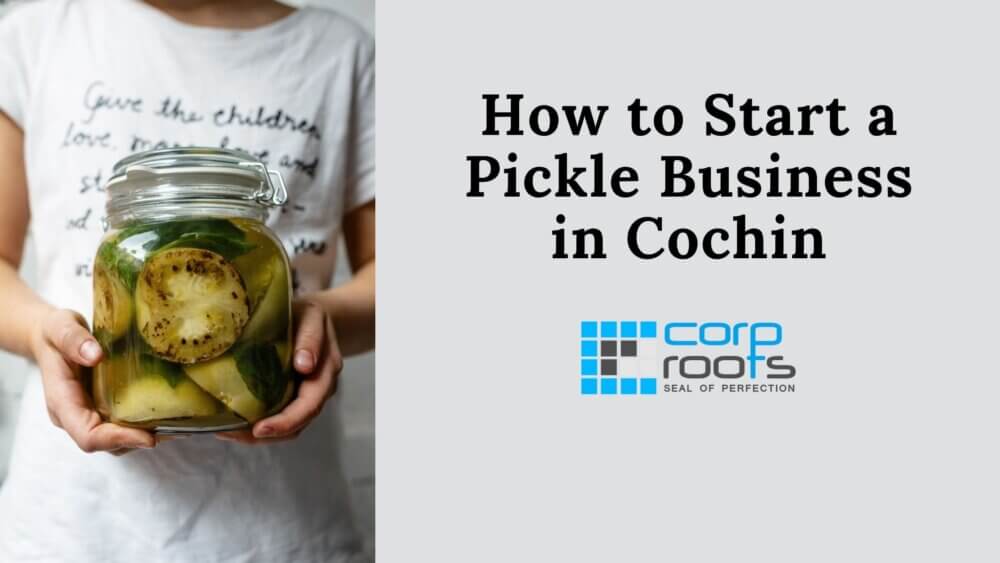How to Start a Pickle Business in Cochin: Food is so diverse and versatile, catering to a wide range of palates. Food is an excellent sector to consider entering if you want to start your own business because it is such an important part of life and an evergreen venture. Pickles are one of those foods that never go out of style. In fact, it is one of India’s most popular foods.
Pickles are widely produced in India and come in a variety of flavors. Aside from increasing domestic consumption, the Indian-made pickle is also seeing increased demand in the international market. This may be a fantastic chance for start-ups to capitalize on the situation and establish a thriving pickle company. This article will provide you with a legal blueprint for establishing a legally viable pickle business.
The Benefits of Starting a Pickle Business
Different types of Varieties: Lemon pickle, mango pickle, carrot pickle, beans pickle, garlic pickles, and brinjal pickle are some examples.
Increasing Demand: Pickle is an essential component of Indian cuisine and is consumed on a daily basis, resulting in high demand in the local market.
Ease of Preparation: Pickle making isn’t a difficult process because it’s done through fermentation after various ingredients are added.
Minimal Equipment: Pickle preparation is limited only to the vessels used to combine the ingredients and preserve the pickle, as well as the jars used to store it in. The unit in charge of pickle mass production uses only a few pieces of machinery, such as a cutting machine, a pickling machine, and a pickle mixing machine.
Small space: The pickle industry does not require a large area to produce high-quality pickles in large quantities. Startups on a tight budget can rent a small space to begin pickle production.
Minimal Investment: To establish a legally viable pickle business in India, one does not need to invest a large corpus of funds. Purchase of equipment, raw materials, and marketing the business are the most significant expenses in this business domain. Other expenses include the cost of obtaining business registration and licenses to operate a business.
How do you start a legally sustainable pickle business?
You must first comprehend the conditions before you can question yourself how to start a pickle business. Permits, licenses, and registrations are frequently required to start a business. They assist in the establishment of legal identity and a sustainable structure for the firm, as well as the establishment of operating rules.
Required licenses and registrations:
- Company registration
The first stage in forming a legal entity in India is to incorporate it under the bylaws that have been provided. The Company Act of 2013, the Partnership Act of 1932, and the Limited Liability Partnership Act of 2008 are well-known Acts that allow unregistered businesses to obtain legal status under the following business structures:
- Factory License
All businesses in the industrial sector are required to have a factory license. The grant of the license is the responsibility of the Chief Inspector of the Labor Commissioner Organization. The factory license is provided on a state-by-state basis, and applications can be filed through the official site of the respective state’s labor department.
- Food license from the FSSAI
- The Food Safety and Standards Authority of India, or FSSAI, is a government-run organization that functions under the Ministry of Health and Family Welfare, Government of India. It is responsible for safeguarding and incentivizing public health through food regulation and testing, as well as regulating the food quality of products available to the general public.
- Every food industry operator in India must register with the FSSAI. Food-related businesses must adhere to the FSSAI’s rules, which govern all areas of the food supply chain, including production, packaging, and marketing. Without an FSSAI number and logo, no packaged foods can currently be sold on store shelves.
- The FSSAI license is obtained by filling out an online application. Interested applicants can go to the FSSAI’s FOSCOS online site and fill out a suitable e-form. In India, the Food Safety and Standards Authority of India (FSSAI) uses the scope of the company, yearly sales, and manufacturing capacity as the primary criteria for granting food licenses.
Extended Read:
How FSSAI requirements benefit your food business?
Conclusion
- Because of the ease of legal requirements and inexpensive cost, the pickle industry is simple to start and run. In comparison to other food enterprises, the entire infrastructure required to start a full-fledged pickle business in India is extremely minimal. This means that there will be many similar enterprises on the market, and in order to win, you must thoroughly investigate the competition.
- Similarly, firms can adjust their strategies to outperform the competition by focusing on two essential factors: cost and quality. Pickle business owners must guarantee that quality standards are adhered to throughout the pickle supply chain, from manufacture to marketing.
We, at Corproots, can help you with the complete process of company registration at the earliest. Visit our website to know more about the same.

